On March 30, 2024, the Annual Academic Meeting and Academic Committee Meeting of the Ministry of Education (MOE) Key Laboratory for Earth System Modeling (hereinafter “the Laboratory”) were held in Beijing. Researcher Ding Yihui, Director of the Academic Committee of the Laboratory, Academician of the Chinese Academy of Engineering (CAE), and Researcher of the National Climate Center (NC), Researcher Guo Donghua, Deputy Director of Academic Committee of the Laboratory, Academician of the Chinese Academy of Sciences (CAS), and Researcher of the Aerospace Information Research Institute (AIR) under the Chinese Academy of Sciences (CAS), Professor Chen Jingming, Fellow of the Royal Society of Canada (RSC), and Professor of Fujian Normal University, Researcher Yu Guirui, Academician of the CAS, and Researcher of the Institute of Geographical Sciences and Resources Research under the CAS, Professor Qian Depei, Academician of the CAS and Professor of Beihang University, Researcher Jiang Kejun of the Energy Research Institute of the National Development and Reform Commission, Professor Yang Guangwen of the Department of Computer Science and Technology of Tsinghua University, and Deputy Director Meng Xiangli of the Research & Development Affairs Office, Tsinghua University attended the meeting. Professor Luo Yong, Dean of the Department of Earth System Science (DESS) of Tsinghua University, Associate Researcher Geng Rui, Secretary of the Party Committee, Professor Huang Xiaomeng, Director of the Laboratory and other key laboratory members attended the meeting. Professor Liu Li, Deputy Director of the Laboratory, hosted the meeting.
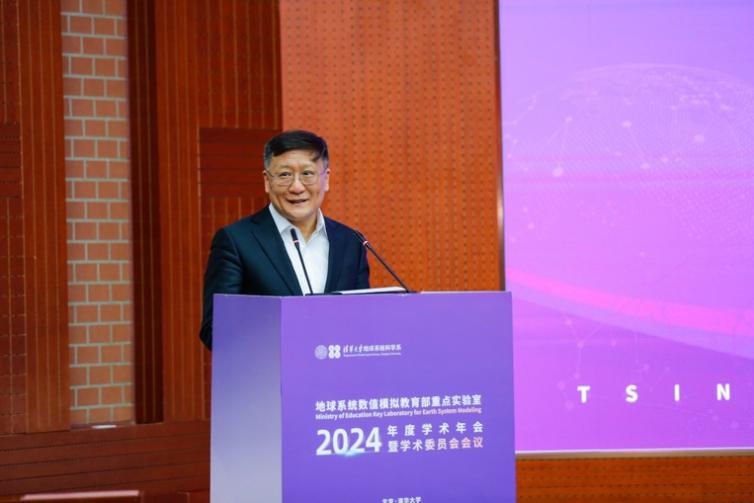
Prof. Luo Yong addresses the opening ceremony
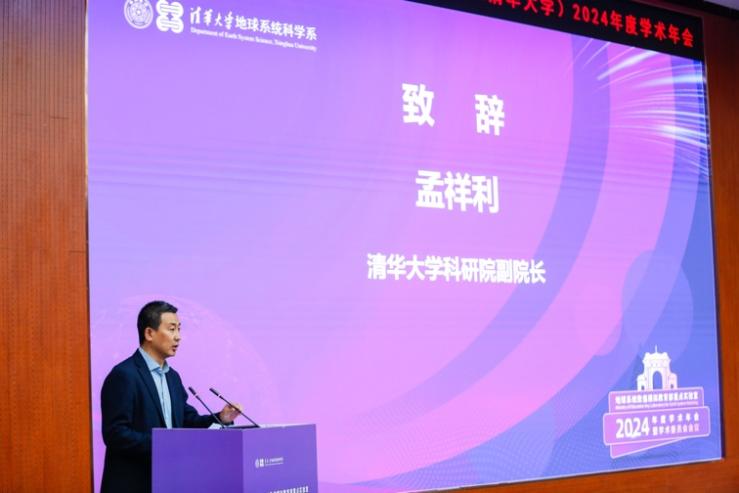
Deputy Director Meng Xiangli addresses the meeting
Deputy Director Meng Xiangli noted in his address that the Laboratory has made full use of the foundation of Earth system science and the advantages of computer science and technology in Tsinghua, and persevered in the exploration of interdisciplinary integration and independent innovation, having accomplished a series of advanced achievements. It is hoped that the Laboratory can make full use of the high-performance computing platform to produce more high-level achievements and train more high-quality talents in the future.
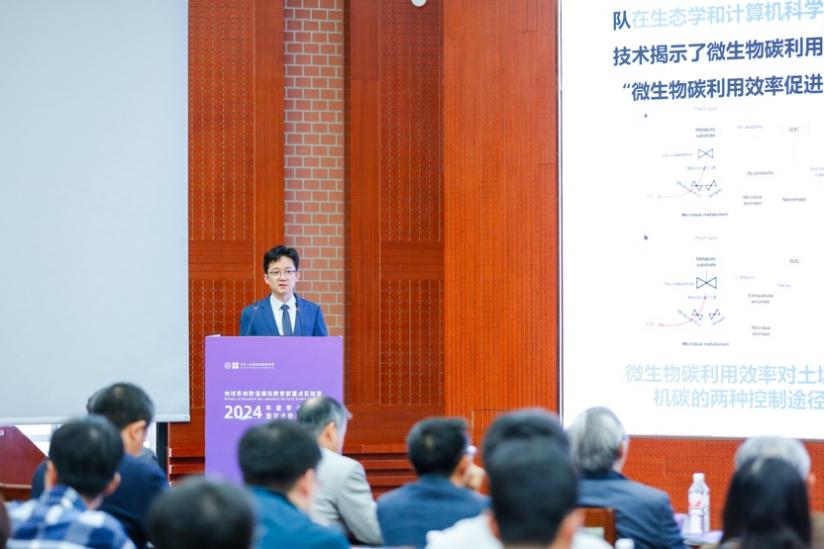
Prof. Huang Xiaomeng delivers a report
Professor Huang Xiaomeng, Director of the Laboratory, gave a “Work Report of the MOE Key Laboratory for Earth System Modeling”. Professor Huang introduced that the Laboratory has, based on interdisciplinary resources, carried out research around the numerical simulation methods of the Earth system, data integration of geosciences, high-performance supporting technologies and applications, and thus developed distinctive characteristics. In 2023, the Laboratory scored a series of achievements with interdisciplinary characteristics, and also accumulated some practical experience of disciplinary integration and coordinated development. Having become a base for pooling and cultivating global change research talents in China, the Laboratory has contributed to training young talents with interdisciplinary abilities in Earth science, computer science, computational mathematics and economics, and enhancing China's international academic status in this field.
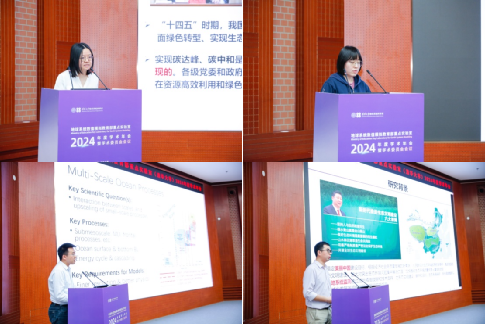
Members of the Laboratory delivered speeches. From left to right and from top to bottom, they are Assistant Professor Tong Dan, Associate Professor Wang Han, Associate Professor Xu Shiming and Associate Professor Yu Le respectively.
Members of the Laboratory, including Assistant Professor Tong D an, Associate Professor Wang Han, Associate Professor Xu Shiming and Associate Professor Yu Le, introduced the recent research work of their respective teams, presenting the latest progress and innovative achievements of the Laboratory in atmospheric chemistry, land ecological process, development of sea ice coupling models, land cover and land use change.
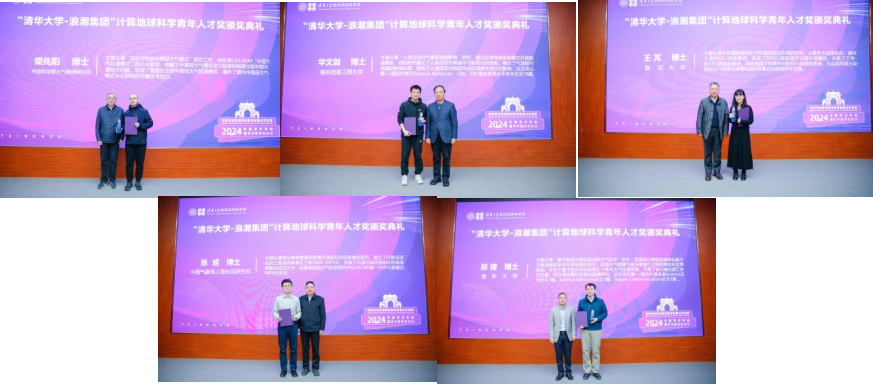
Awarding Ceremony of “Inspur Award”. The winners are Chai Zhaoyang, Hua Wenjian, Wang Peng, Zhang Xu and Zheng Bo from left to right and from top to bottom.
At the annual meeting, the Awarding Ceremony of Tsinghua University-Inspur Group Young Talents Award for Computational Earth Sciences (“Inspur Award”) was held. The Inspur Award, since its inception in 2012, has selected 59 winners so far, who have been working hard in several research fields and have become mainstays of China's Earth system science development. Next, the five winners delivered academic reports based on their respective award-winning research.
On the afternoon of the same day, eight grantees of the Laboratory's 2022 Open Fund made concluding reports of their projects, and six grantees of the 2023 Open Fund made research proposal of their projects. The Open Fund aims at promoting laboratory construction and discipline development, and promoting the research and application of Tsinghua University’s Community Integrated Earth System Model (CIESM). Through close cooperation with scholars from different research fields in many institutions, the Open Fund promotes multidisciplinary integration and sustainable development and application of the Earth System Model.
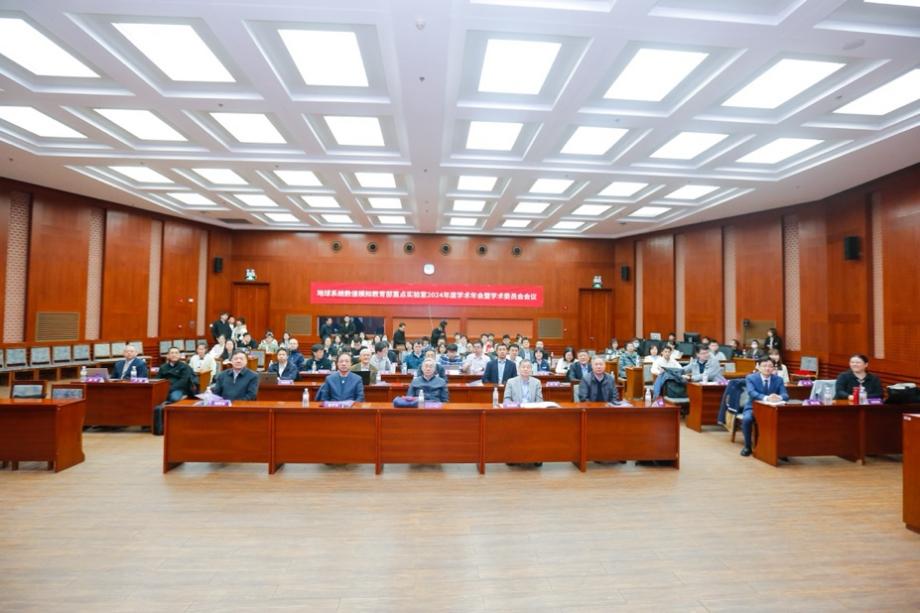
Group photo of the annual academic meeting
The Academic Committee affirmed the achievements made by the Laboratory in recent years, and encouraged the Laboratory to maintain its interdisciplinary characteristics, persist in independent innovation, and promote the integrated development of Earth system science and high-performance computing technology. In the next step, the Laboratory will continue to promote key work, and with this annual meeting as an opportunity, identify the research direction, optimize the research layout, further focus on major national needs and the world’s scientific frontier, strive to pioneer the field of science and technology, and bravely shoulder the burden of addressing national strategic needs.